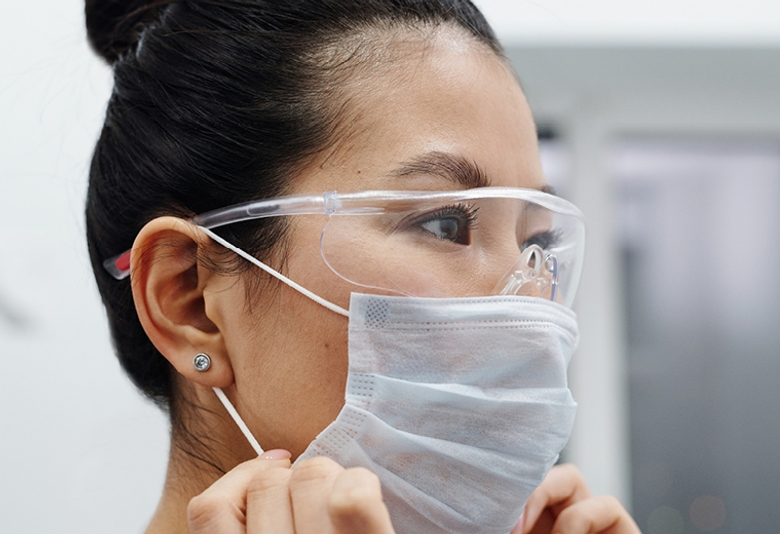Be it the monthly periods, birth control or transmissible infections, our sexual and reproductive health has lasting impact on all other aspects of our lives. Therefore, it deserves great attention and care.
On this International Nurses Day, we asked nurses from around the world to share their advice for sexual and reproductive health. Read their responses below.
Knowledge is power
Whether Christian or Muslim, conservative or eccentric, waiting or sexually active, sexual and reproductive health is of great importance. We live in a society where knowing less about reproductive health is a sign of innocence. The truth is that ignorance is not bliss. It is rather a road to bad health and negative consequences.
Knowing how our body works and being aware of health symptoms should not be equated to being a “bad girl”, as many insist. Lack of knowledge means women arrive late at hospitals because they were unable to identify ‘normal’. I believe this is why we have such a high maternal mortality rate. Health personnel are being trained to improve the situation but women still live in the shadow of the culture that “when you arrive, you will know”.
I encourage you to break this cycle. We know that good relationships foster better outcomes. Get to know your body today; understand the how’s and the why’s. Real pain is walking into a trap that could have easily been avoided.
Lawren, Pregnancy Matters, Ghana
Right to comprehensive care
My advice is aimed at health professionals, and has to do with respecting the autonomy of the people who come to us. By this, I mean working from a multicultural and gender diversity approach. This way we can foster friendly, caring and educational spaces for care.
Reproductive and non-reproductive sexual health is a difficult topic to discuss in many cultures, with many taboos and social pressures. Therefore, working from a broad perspective without stigmas and discrimination is important. Being willing to learn from others, their needs and concerns help us grow as professionals.
Finally, my message to users of sexual health services is to remind them that they have the right to demand comprehensive care, to be listened to and taken into account. Let’s not forget that they are the protagonists of their sexual health.
Natalia Panis, Fundación Huésped, Argentina
Sex education for all
Being a professional nurse in Liberia has shown me how much we need sexual and reproductive health services and education. Due to this lack, we face many challenges today in the health sector, for example, teenage pregnancy; middle and senior secondary school girl dropouts; maternal, infant, and childhood mortality; and low contraceptive prevalence.
Liberia has one of the highest rates (33.5%) of teenage pregnancy. Th032.ree out of five girls in Liberia are already mothers. This has increased the school dropout and poverty rate among those girls. If this problem continues, it will threaten the Liberian society because these girls will lack basic education, skills and self-empowerment opportunities.
My advice is as following. Firstly, we should provide age-appropriate comprehensive sex education in schools to both girls and boys. Secondly, family planning services should be accessible, affordable, and youth-friendly. Thirdly, young people should be involved in efforts related to their sexual and reproductive health. Finally, we should encourage pregnant teenagers and teen mothers to remain in school.
Queenie M. Walloh, Liberia
Well-informed choices
My advice is mainly for teenagers. Sex, unlike what we think, is more than just physical contact. It is, first of all, a well-considered choice. Along with pleasure comes potentially devastating consequences if you do it at the wrong time and without proper precautions. Sexually transmitted infections (STIs) and unwanted pregnancies are real.
Abstinence is a choice, just like using condoms or other contraceptive methods.
If in doubt, talk to a trusted person. The best ones are in health centers and youth centers ready to listen to you and provide you with all the information you need for responsible and safe sex.
Melissa Dogbe, Togo
Demand better care
Many young people in Nigeria do not have access to information on sexual matters due to the taboos attached to them. Families don’t discuss topics related to sexual and reproductive health at home, with an exception of few which, in most cases, insist on abstinence-until-marriage. This has done more harm than good.
As a result, most young people make media and friends their source of information on sexual matters, which exposes them to half-truths, myths and unhealthy sexual practices. It is important to acquire SRHR knowledge. However, that does not mean we should ignore abstinence, which is the only 100% way of preventing unplanned pregnancies and STIs including HIV.
As a leading nurse and SRHR advocate, I’m in a position to improve the quality of healthcare in Nigeria. One sexual and reproductive health advice that I would like to give young people is to increase their knowledge on SRHR-related topics. This is important for everyone, sexually active or not. I strongly believe this will prepare them to make informed decisions. This will also significantly reduce the rate of unwanted pregnancies, unsafe sex, maternal mortality, unsafe abortion, STIs, and harmful traditional practices including child marriage.
Furthermore, young people face challenges accessing SRHR services in Nigeria. To promote access and increase reach, young people must develop an interest in advocacy. They should support the implementation of youth-friendly SRHR services. I’m fully committed to this. Through my social impact work, I have helped over 300 young people access SRHR information and services.
Oluwafisayomi Olowu, Faculty of Nursing Science, Ladoke Akintola University of Technology, Nigeria
Prioritize your health
I think that people should be conscious about their sexual and reproductive health and rights. If they are not abstaining from sex, they have to be very protective of their sexual life. Being protective involves taking care of themselves.
This is a broad topic and has so many components. It includes sexual health, sexual rights, reproductive health and reproductive rights.
However, I want to focus on unwanted pregnancy and sexually transmitted diseases. Not prioritizing one’s sexual health might lead to disastrous outcomes. One of this is unwanted pregnancy, which you can prevent if you take SRHR personally and practice it effectively. Also, with the prevalence of sexually transmitted diseases, you have to be very careful to avoid contracting them. It all starts by prioritizing your sexual reproductive health and right.
Judith Amie Mustapha, Bo Governmental Hospital, Sierra Leone
Early detection and prevention
Sexual and reproductive health and rights are basic human rights. They affect our overall health, from birth to death. Therefore, every individual should have equal access to necessary health services regardless of their religion, race or gender.
However, women suffer three times more than men when it comes to reproductive health issues and that is why their access to health services is even more important. To address this, we should adopt a lifelong approach. Doctors need to determine and eliminate risk factors according to the age, at the earliest stage.
To build a healthy world, we should do the following. Firstly, provide age and need-appropriate health education. Secondly, prevent gender discrimination that deepens reproductive and sexual health problems. This is often a result of the gender roles society assigns to women and men. Thirdly, we should learn about reproductive and sexual health rights of individuals and exercise them. Finally, we should ensure that disadvantaged groups have access to all services within the scope of sexual and reproductive health rights.
We should not forget that healthy societies consist of healthy people.
Associate. Professor. Dr. Gülten Koç, Turkey
Do you have something to share? Leave your comments below, contact us on our social media platforms: Facebook, Instagram, Twitter, YouTube and TikTok, send us an email to info@findmymethod.org. For more information on contraception, visit findmymethod.org
About the author: This article is curated by the Find My Method team.







